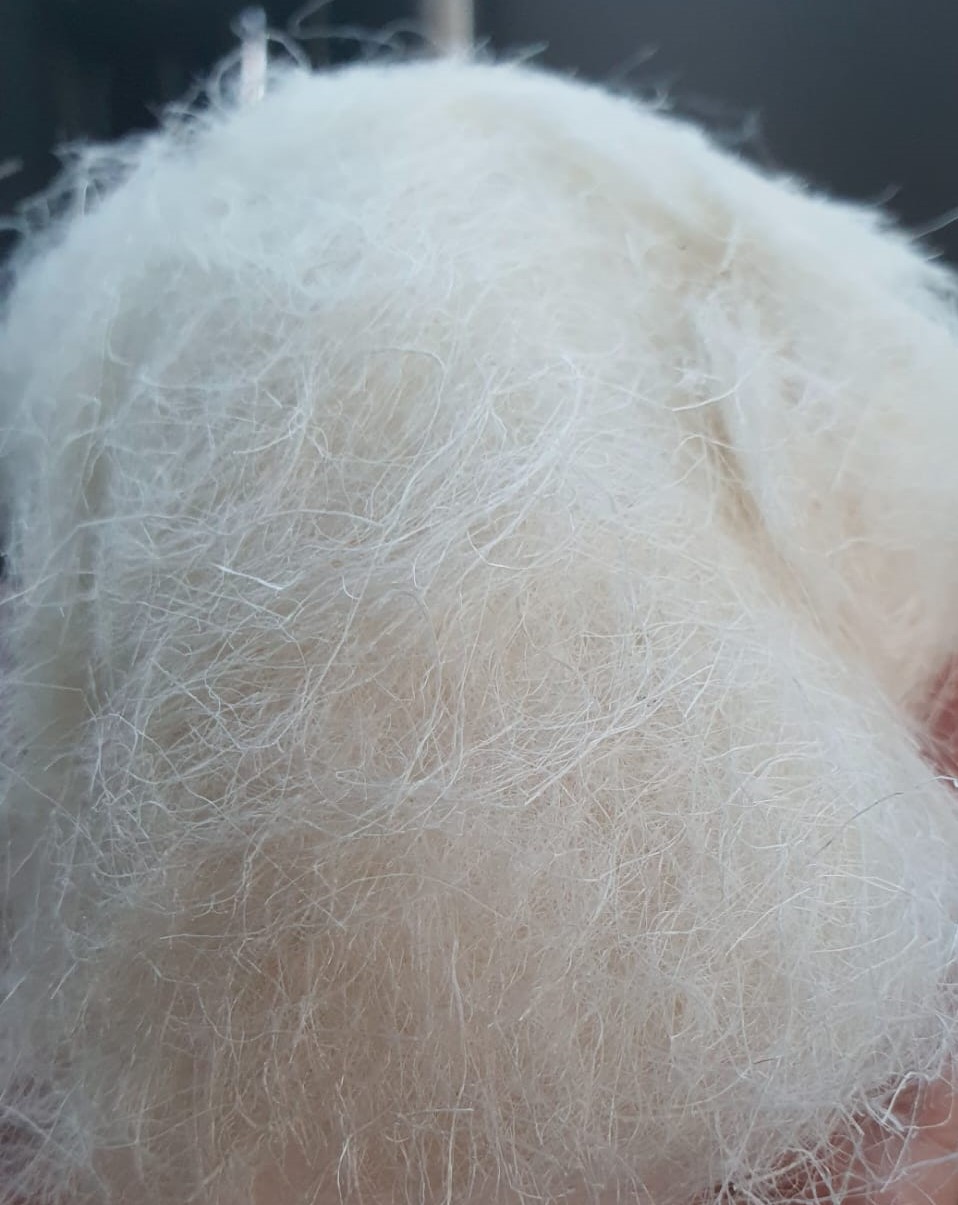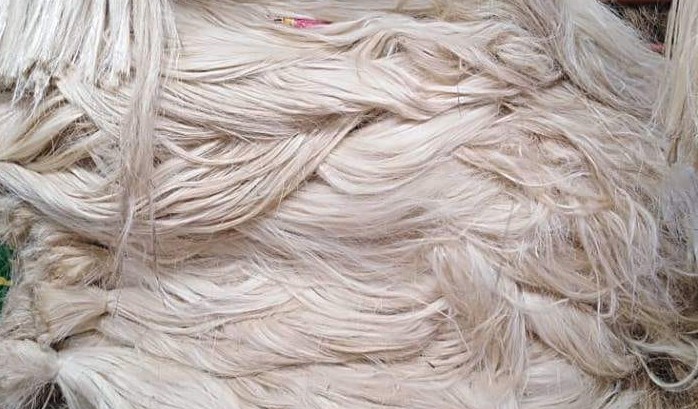
The B2B platform for the best purchasing descision. Identify and compare relevant B2B manufacturers, suppliers and retailers
Close
Filter
Result configuration
Continents
Select continent
Locations
Result types
Company type
Select company type
Industries
Select industry
Company status
Select company status preset
Number of employees
Min.
Max.
Founding year
Fibers Source
Dhaka, Bangladesh
E
1-10 Employees
2021
Key takeaway
Fibers Source is a trusted agent of raw cotton in Bangladesh, representing leading suppliers globally. Cotton is highlighted as the most important natural textile fiber, used in various applications such as apparel and home furnishings.
Reference
Core business
Fibers Source – It's All About Quality of Fibers
Bio Fiber Industries
Seattle, United States
B
1-10 Employees
2019
Key takeaway
Bio Fiber Industries is dedicated to producing high-quality, non-toxic raw materials, including hemp insulation, which aligns with the growing interest in natural fibers. Their focus on sustainable and regenerative solutions from diverse crops highlights their commitment to eco-friendly practices in the industrial and agricultural sectors.
Reference
Core business
Bio Fiber Industries – Bio Fiber Industries
Natural materials used wisely
FIBER N FIBRE
Dhaka, Bangladesh
E
51-100 Employees
2006
Key takeaway
FIBER N FIBRE specializes in exporting jute products, highlighting their expertise in this versatile natural fiber. Their extensive product range includes raw jute, jute yarn, fabrics, bags, and various allied products.
Reference
Core business
about - FIBER N FIBRE
Looking for more accurate results?
Find the right companies for free by entering your custom query!
25M+ companies
250M+ products
Free to use

Natural Textiles Solutions LLC
Macungie, United States
B
1-10 Employees
2013
Key takeaway
Natural Textiles Solutions (NTS) is actively developing a natural fiber processing hub in Pennsylvania, emphasizing its commitment to high-quality wool products and a range of natural bast fibers, including Hemp, Flax, Jute, and Kenaf.
Reference
Product
Bast Fibers – Natural Textiles Solutions

Fiber Fashion INT'L
Dhaka, Bangladesh
E
1-10 Employees
2016
Key takeaway
The company, Fiber Fashion, is a leading manufacturer and exporter of ready-made garments, emphasizing their commitment to quality and innovation in various materials.
Reference
Product
Fiber Fashion :: Product Details

Naturtex
Crevillent, Spain
A
11-50 Employees
1997
Key takeaway
Naturtex is a prominent manufacturer and supplier of premium natural fiber fabrics, specializing in sustainable materials such as cellulose, cane, raffia, linen, and cotton. With a commitment to innovation and reducing environmental impact, Naturtex continuously explores new ways to enhance natural fiber textiles.
Reference
Core business
Naturtex - About us
Custom Fiber
Bornem, Belgium
A
11-50 Employees
-
Key takeaway
Custom Fiber specializes in producing high-quality fibers derived from natural raw materials like cereals, cellulose, and fruits. Their dietary fibers enhance the nutritional value of food products and improve the functional properties of items across various industries.
Reference
Core business
Manufacturer of food fiber, Food fiber, Fiber Manufacturer, Food Fiber Manufacturer, Producer of Fiber, Fiber Producer, Food Fiber, Wheat Fiber, Bamboo Fiber, Powdered Cellulose, Sugar Cane Fiber, Oat fiber, Apple Fiber, Chokeberry Fibe; Cocoa Fiber - Custom Fiber

RUCKSTUHL AG
Langenthal, Switzerland
A
101-250 Employees
1881
Key takeaway
Ruckstuhl has been transforming natural raw materials into cultural values since 1881, emphasizing the use of natural fibers such as coir, sisal, pure new wool, hair yarn, fique, linen, viscose, and wood in their products.
Reference
Core business
Natural fibres

JELU-WERK Josef Ehrler GmbH & Co KG
Germany
A
- Employees
-
Key takeaway
JELU is a renowned manufacturer of natural fibers, including cellulose and food fibers, which serve as functional additives in various applications. Their innovative processing of renewable resources ensures high-quality, versatile natural fibers that enhance products in the food industry, animal breeding, and technical sectors.
Reference
Core business
Natural fibres for food, pets and livestock, technical products
ES FIBERVISIONS
Duluth, United States
B
51-100 Employees
2000
Key takeaway
ES FIBERVISIONS TM specializes in bicomponent fibers, providing tailored fiber solutions that meet customer specifications and quality requirements.
Reference
Product
Products
Technologies which have been searched by others and may be interesting for you:
A selection of suitable products and services provided by verified companies according to your search.

Product
Pineapple Cotton Fiber
Go to product

Product
Abaca Fibers
Go to product
Natural fibers are materials derived from plants, animals, or minerals that are used in a variety of applications, including textiles, construction, and insulation. These fibers are biodegradable and renewable, making them an environmentally friendly alternative to synthetic fibers. Common examples include cotton, wool, silk, and jute, each offering unique properties such as breathability, insulation, and durability. The use of natural fibers in manufacturing not only supports sustainable practices but also contributes to the reduction of carbon footprints in various industries.
1. Eco-Friendly
Natural fibers are biodegradable and renewable, making them a sustainable choice compared to synthetic alternatives. Their production generally has a lower environmental impact, reducing pollution and resource depletion.
2. Breathability and Comfort
These fibers offer excellent breathability, allowing moisture to escape and keeping the wearer comfortable. This quality makes natural fibers, such as cotton and linen, ideal for clothing and textiles.
3. Durability
Natural fibers are often strong and durable, providing longevity in products. For instance, hemp and jute are known for their robustness, making them suitable for various applications, including construction and textiles.
4. Health Benefits
Using natural fibers can promote better health since they are less likely to cause skin irritation compared to synthetic fibers. They are also hypoallergenic, making them a preferred option for those with sensitivities.
Natural fibers are derived from plants, animals, and minerals, offering a wide range of options for various applications.
1. Plant-Based Fibers
These include cotton, linen, jute, and hemp. Plant-based fibers are known for their breathability and comfort, making them popular in textiles and apparel.
2. Animal-Based Fibers
Wool, silk, and alpaca are examples of animal-based fibers. They provide warmth and softness, often used in clothing and luxury fabrics.
3. Mineral Fibers
Asbestos is a notable mineral fiber, although its use has declined due to health concerns. Mineral fibers are typically used in insulation and construction materials.
Each type of natural fiber has unique properties that cater to different market needs, contributing to sustainability and eco-friendliness in product sourcing.
Natural fibers undergo several processing steps to transform them from raw materials to usable products. Initially, these fibers are harvested from their sources, which can include plants, animals, or minerals. After harvesting, they typically undergo a cleaning process to remove impurities such as dirt and debris. Following this, the fibers are often subjected to a separation or extraction process, where they are separated from the surrounding materials. For plant-based fibers, this may involve retting or decorticating, while animal fibers, like wool, are sheared from the animals. Once extracted, the fibers are then spun into yarns, which can be further processed into fabrics or textiles. Throughout these stages, quality control is essential to ensure the final product meets industry standards.
1. Textiles
Natural fibers are widely used in the textile industry for clothing, upholstery, and home furnishings. Materials such as cotton, linen, and wool are favored for their comfort and breathability.
2. Construction
In construction, natural fibers like hemp and jute are utilized in insulation and eco-friendly building materials. Their sustainability and thermal properties make them attractive choices for green building projects.
3. Automotive
The automotive sector also employs natural fibers in composite materials for vehicle interiors and components. These fibers contribute to weight reduction and improved fuel efficiency.
4. Composites
Natural fibers are increasingly integrated into composite materials for various applications, including packaging and consumer products. Their biodegradability adds an eco-friendly aspect to product design.
5. Home Goods
Home goods such as rugs, mats, and decorative items often incorporate natural fibers. These products appeal to consumers seeking sustainable and aesthetically pleasing options.
Some interesting numbers and facts about your company results for Natural Fibers
| Country with most fitting companies | United Kingdom |
| Amount of fitting manufacturers | 3409 |
| Amount of suitable service providers | 1868 |
| Average amount of employees | 11-50 |
| Oldest suiting company | 1881 |
| Youngest suiting company | 2021 |
20%
40%
60%
80%
Some interesting questions that has been asked about the results you have just received for Natural Fibers
What are related technologies to Natural Fibers?
Based on our calculations related technologies to Natural Fibers are Glass, Superconductors, High-Performance Materials, Raw Materials, Phase Change Materials
Who are Start-Ups in the field of Natural Fibers?
Start-Ups who are working in Natural Fibers are Fibers Source
Which industries are mostly working on Natural Fibers?
The most represented industries which are working in Natural Fibers are Textile, Other, Retail, Consumer Goods and Services, IT, Software and Services
How does ensun find these Natural Fibers Suppliers?
ensun uses an advanced search and ranking system capable of sifting through millions of companies and hundreds of millions of products and services to identify suitable matches. This is achieved by leveraging cutting-edge technologies, including Artificial Intelligence.